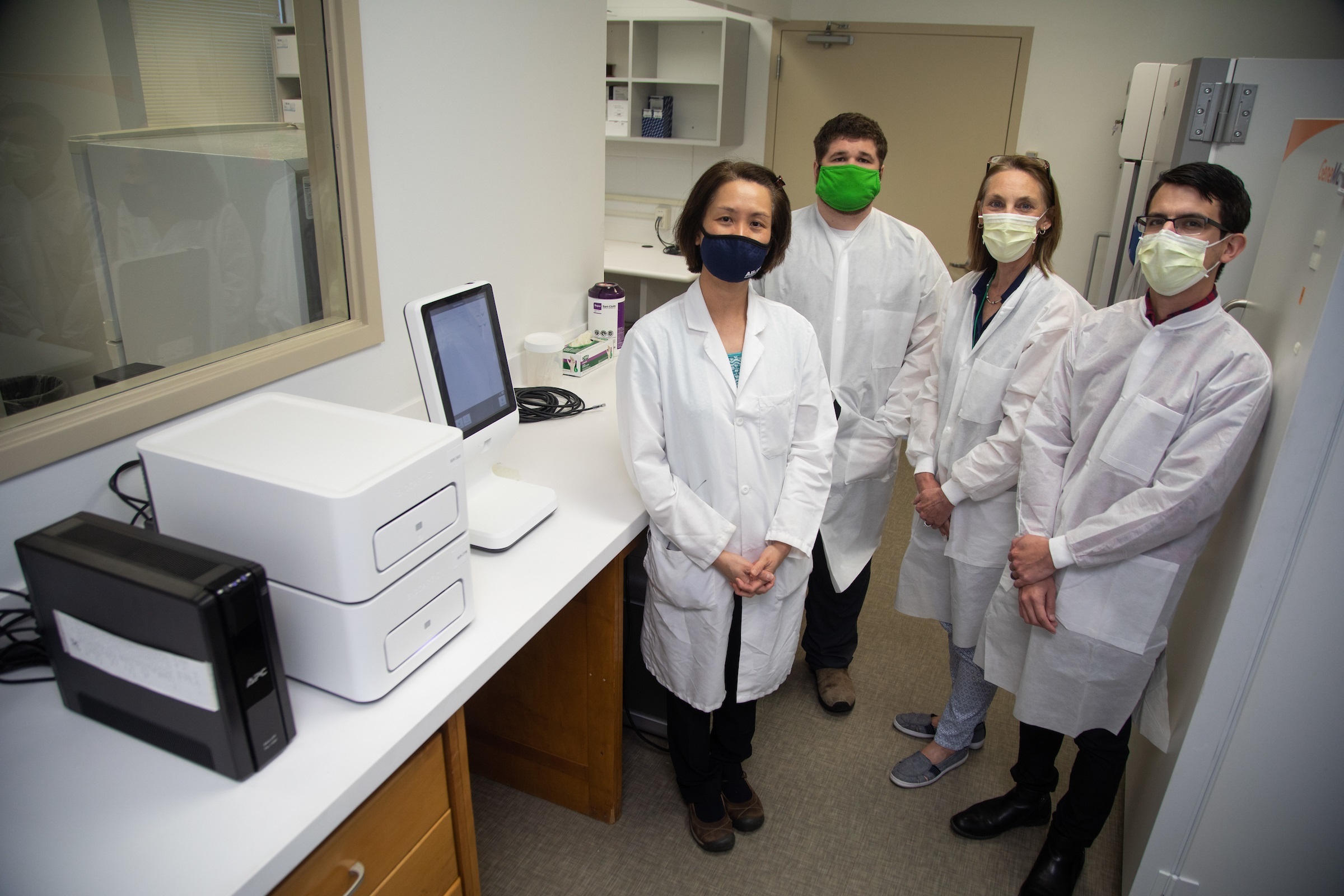
USA Health launches in-house molecular cancer tests to guide precision medicine
USA Health now offers two in-house molecular oncology tests for cancer patients that can detect mutations directly from tumor tissue and cytology specimens.
USA Health now offers two in-house molecular oncology tests for cancer patients – BRAF Gene Mutation Assay and MSI (Microsatellite Instability) Assay. Onsite testing means patients receive results more quickly and can start the appropriate treatment sooner than if an outside laboratory performs the testing.
“The Molecular Pathology Laboratory at USA Health – the first precision oncology lab in the area – provides much-needed molecular testing services for patients in our local region by performing onsite, in-house cancer tests,” said Thuy Phung, M.D., Ph.D., medical director of molecular pathology and dermatopathology at USA Health. “This will significantly accelerate the diagnostic process and enable physicians to make critical therapy decisions for patients in a timely manner.”
Previously, USA Health sent specimens to outside reference labs for BRAF mutation and MSI tests, with turnaround time of results to patients taking several weeks. The tests now are implemented at USA Health. They are fully automated and can detect mutations directly from tumor tissue and cytology specimens. Clinicians typically receive results within a few business days from the time a specimen is received in the molecular lab for testing.
The most common mutations in BRAF gene occur in codon 600 and are found in approximately 50 percent of melanoma patients. BRAF mutations also are harbored in a variety of other solid tumors including colorectal, endometrial, lung and blood cancers. Several therapies have been developed that target BRAF codon 600 mutations and have shown clinical response rates in up to half of patients with metastatic melanoma. Testing for gene mutations is critical in determining how to tailor treatment for each patient in the current era of precision medicine and oncology care.
The MSI Assay detects biomarkers for cancers with microsatellite instability, including colorectal and endometrial cancer. Determining MSI status is a screening test for Lynch Syndrome, an inherited disorder that increases the risk of developing colorectal cancer, endometrial cancer and several other solid tumor types. MSI status also serves as a predictive biomarker for response to immunotherapy with immune checkpoint inhibitors.
The lab now is working on expanding the current test menu to include other key molecular biomarkers as well as bringing in state-of the-art next generation sequencing (NGS)-based assays to uncover key mutations for targeted therapy in a variety of common cancers.
As an academic health system, USA Health is on the forefront of cancer research and treatment. For molecular test inquiries, contact the Molecular Pathology Lab at (251) 471-7335 or by email at [email protected].




